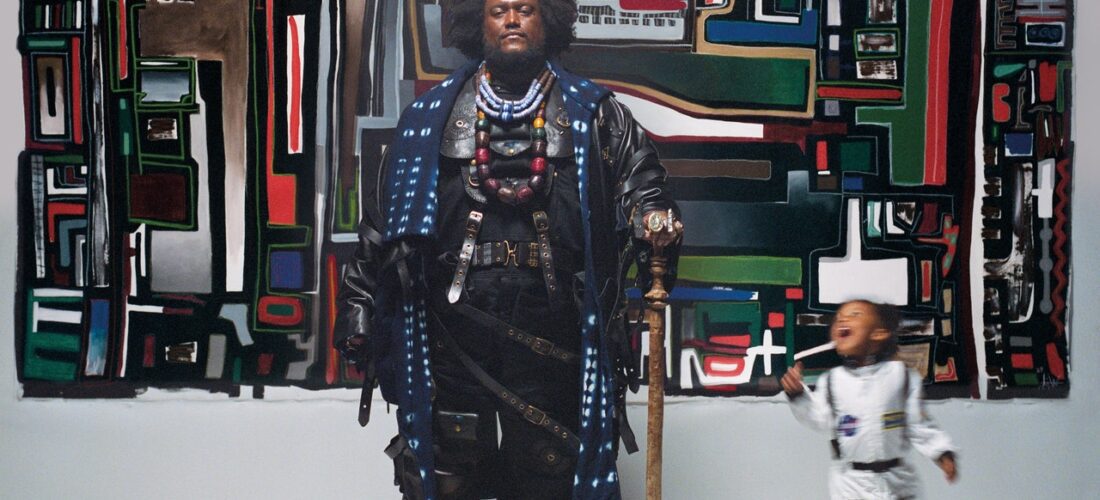Kamasi Washington likes to go big. The star saxophonist and bandleader’s debut album was a 3xLP extravaganza appositely titled The Epic. The follow-up, Heaven and Earth, was a bit briefer—only two hours this time—but even more ambitious. Fearless Movement, the third full-length with his name on the spine, shows signs of scaling back and relaxing. Its runtime is a comparatively lean 86 minutes. The third track is a Zapp cover; George Clinton shows up a couple tunes later on a funk jam called “Get Lit.” There are guest verses from a few different rappers, little-known names who bring throwback block-party MC energy even when their subject matter gets heady. For the first time, Washington seems interested in conveying not just big feelings like joy, struggle, and transcendence, but also something like fun—just as important, no doubt, and perhaps even more difficult to get across.
Washington became jazz’s most recognizable new face in part through his conviction that jazz writ large is a pressing contemporary concern. Though he has collaborated with high-profile musicians from outside of jazz—Kendrick Lamar’s To Pimp a Butterfly the greatest among them—his own music communicates a populist spirit not through concessions to mainstream styles, but grand scale and sheer musical urgency. With their large ensembles, thunderous climaxes, and marathon runtimes, his records present jazz as vitally important, worth paying attention to even if you’re not a connoisseur.
This heavy import can suffocate playful invention and human idiosyncrasy, two forces as central to jazz as the composerly ambition and spiritual yearning that characterize much of Washington’s work. In theory, the relative lightness of Fearless Movement is a natural and welcome next step after his pair of zeitgeist-grabbing epics. But too often, tunes that might prance, flex, and delight remain burdened by their own gravity. Fearless Movement’s first half is filled with guest vocalists delivering songs that attempt awkwardly to be soundtracks for both revelry and deep contemplation. The album gets better when it dispenses with its noncommittal relationship to party music, freeing Washington to pursue the heroic high drama that’s still his strong suit.
The players, all excellent musicians, are drawn largely from the same crew of friends that powered Washington’s earlier work. Their default mode is full-tilt shredding, which can be thrilling and stultifying. Accompanists tend to nip at the heels of soloists rather than hang back and let them cook, an approach that pushes both sides to greater excitement when it’s working well: When Brandon Coleman’s organ dogs Dontae Winslow’s trumpet on “The Garden Path,” Winslow bobs and weaves as if to evade its pursuit, and Coleman responds by digging in even more ferociously. But when they’re all going so hard all the time, it leaves little room for the surprise of an individual outburst or the sensuality of negative space. There are two drummers playing full kits, and several additional percussionists; when one starts to settle into a pocket that might get bodies moving, the other tends to take it as a cue to start up with busy fills.
